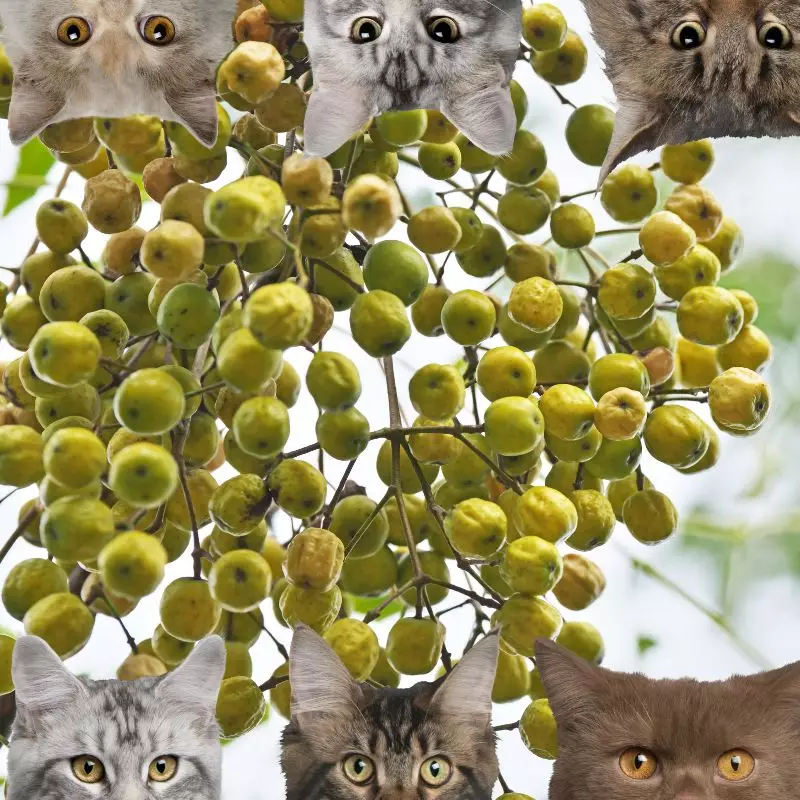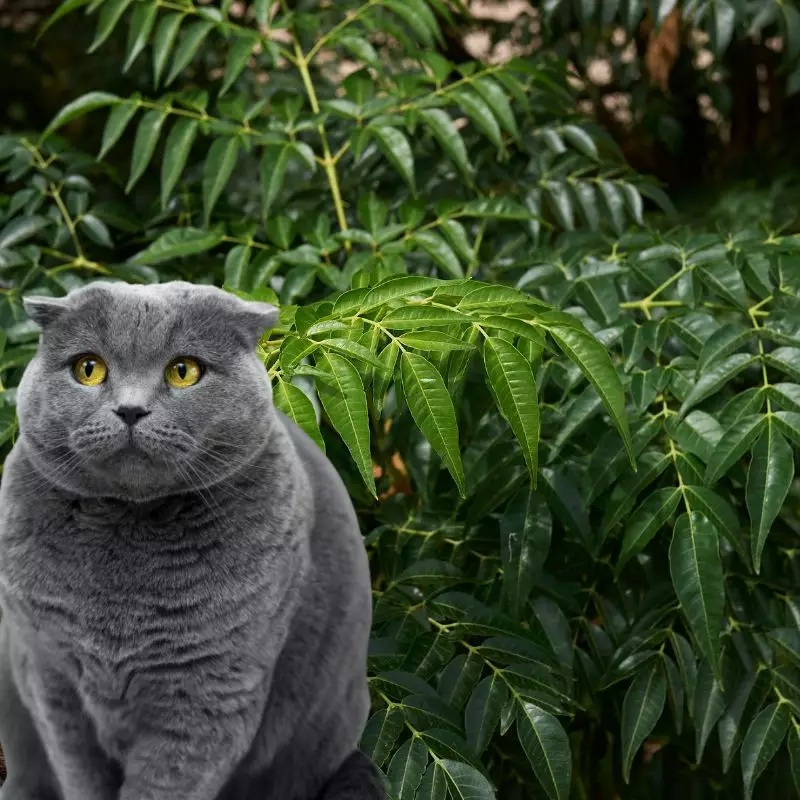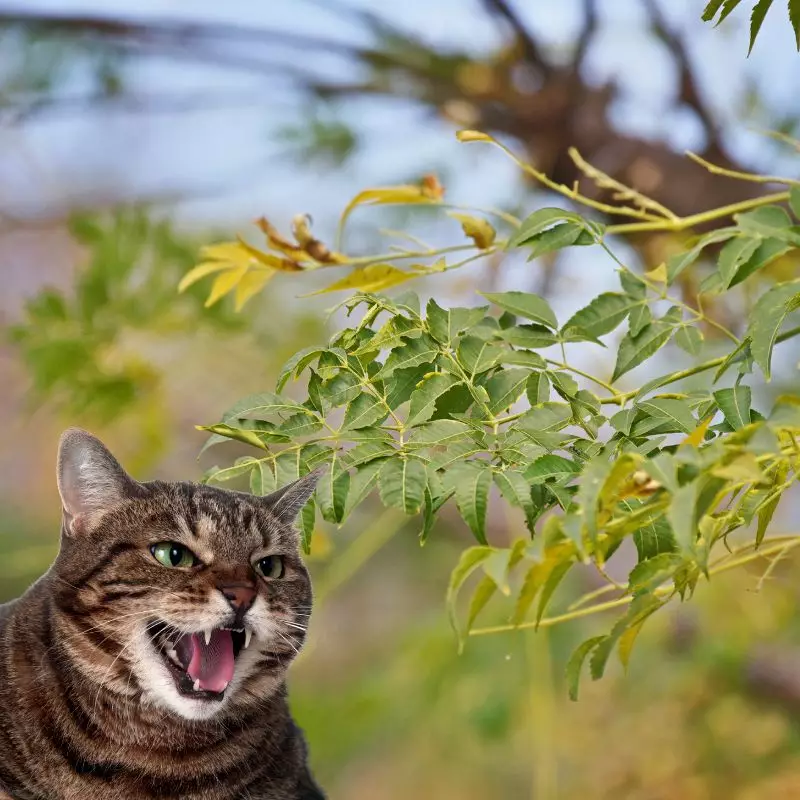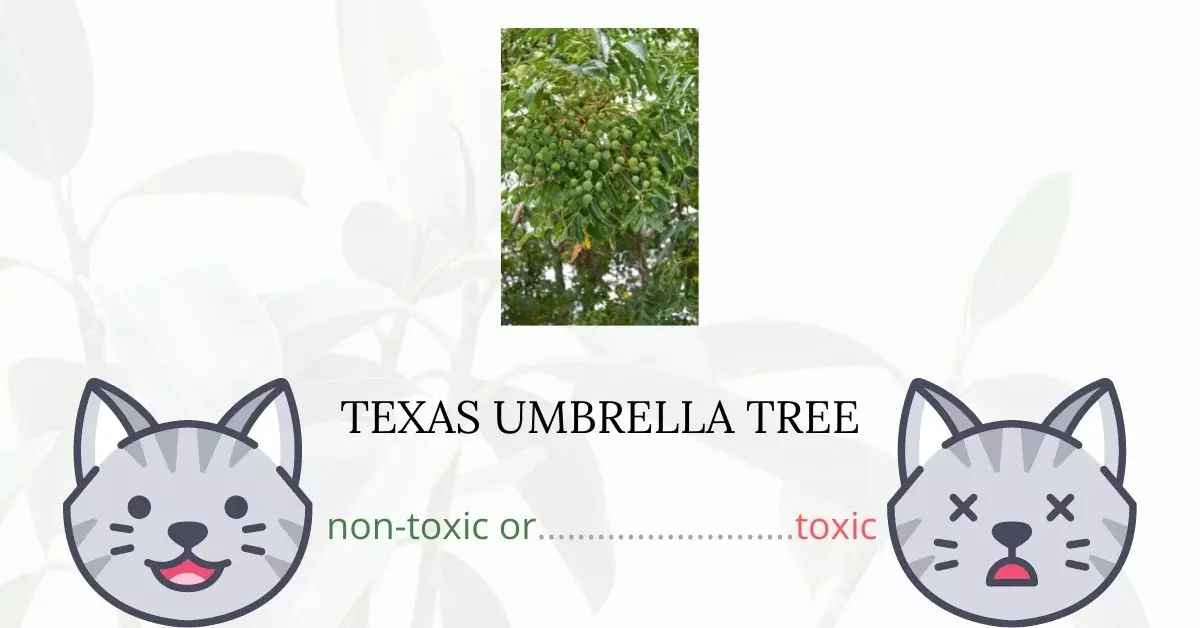The Texas Umbrella Tree indeed poses a substantial risk to cats as every part of it contains meliatoxins, also known as tetranortriterpenes, which can be highly toxic when ingested. When cats consume parts of this tree, they may exhibit a range of symptoms including gastrointestinal distress like vomiting and diarrhea, excessive drooling, paralysis, and even seizures, with the berries being especially harmful due to their high concentration of toxins.
To ensure the precision and reliability of this article, we collaborated with a group of seasoned Doctors of Veterinary Medicine (DVMs), who generously contributed their expert knowledge on the potential hazards of various plants, specifically the Texas Umbrella Tree in this instance, and their impacts on cats. Their invaluable insights enable us to offer accurate and current information on the subjects discussed. Additionally, extensive research has been conducted using high-authority websites such as ASPCA and PetMD to corroborate every piece of information provided about each plant. Through these combined efforts, we aim to raise awareness and educate pet owners on the plants that could harm their furry companions.
Clinical Signs of Texas Umbrella Tree Poisoning in Cats

When cats are exposed to the Texas Umbrella Tree, whether through contact, inhalation, or ingestion, they can exhibit a range of clinical signs due to the presence of meliatoxins or tetranortriterpenes found in the tree. These toxins disrupt normal cellular functions, leading to a host of symptoms indicative of poisoning.
- Diarrhea and Vomiting: The ingestion of any part of the Texas Umbrella Tree often results in gastrointestinal irritation, causing cats to suffer from diarrhea and vomiting. This is due to the body’s effort to expel the consumed toxins promptly.
- Excessive Drooling: Contact or ingestion of the tree can cause excessive salivation or drooling in cats, indicative of nausea or oral irritation caused by the meliatoxins.
- Depression: The toxins may affect the cat’s central nervous system, leading to behavioral changes such as depression, as the cat experiences discomfort and pain.
- Weakness and Lethargy: Meliatoxins can lead to a decrease in energy levels, resulting in pronounced weakness and lethargy due to the body’s struggle to cope with the toxic assault.
- Seizures: In severe cases, the neurological impact of the toxins can cause seizures, which are sudden, uncontrolled disturbances in the brain, illustrating the grave consequences of Texas Umbrella Tree poisoning.
Some cats might exhibit symptoms immediately following exposure to the Texas Umbrella Tree, while in others, signs may not appear for several hours as the body processes the toxins. Recognizing these symptoms early and seeking immediate veterinary care is crucial to mitigate the adverse effects and ensure the well-being of the affected feline.
First Aid and Treatment of Texas Umbrella Tree Poisoning in Cats

After a diagnosis, treatment will begin immediately. Any plant material left in your cat’s stomach will need to be removed by inducing vomiting, which the vet will do. A 3 percent hydrogen peroxide solution is taken orally to accomplish this. After the vomiting stops, the vet will give your cat activated charcoal to absorb any lingering toxins before they reach the bloodstream. Finally, the veterinarian can do a gastric lavage, which is the medical word for a stomach wash, to clear the stomach cavity.
If all plant debris has been removed from the stomach cavity, the veterinarian can inject Kapectolin or sucralfate, which cover the stomach lining and prevent additional discomfort.
Seizure is a common symptom of Texas umbrella tree poisoning. If your cat is already having seizures, your veterinarian will need to give him or her anticonvulsant medication.
Throughout the treatment, the vet will closely monitor your cat’s health condition because frequent vomiting and diarrhea can lead to extreme dehydration. If that’s the case, the vet will give him fluids through an IV to help him recover.
Recovery from Texas Umbrella Tree Poisoning in Cats

The majority of cats that have been poisoned by Texas umbrella trees will recover completely within a few hours of treatment. However, if you do not treat your cat immediately, he may develop major health problems that will make recovery more difficult.
The majority of cats will be released after treatment. If the cat has a health problem, such as dehydration or seizures, he may need to stay at the clinic for more observation until he is stable enough to go home. Before you bring your cat home, talk to your vet about nutritional recommendations. Because the cat’s stomach may still be sensitive after treatment, some veterinarians recommend switching to soft foods in the days after treatment.
Prevention of Texas Umbrella Tree Poisoning in Cats
You must avoid your cat from further contact with the Texas umbrella tree. If you can, remove this tree from your yard. If you suspect one of your neighbors has it, keep your cat indoors as much as possible.
If you love plants but have cats at home, check out these lists:





